Professional fly control in Reading and throughout Berkshire
Flies pose a serious hazard to our health as they are a vector for disease; flies carry harmful bacteria and viruses from place to place and when it comes to flies, these are everywhere.
Carrion flies; blue bottles and green bottles are drawn to the smell of rotting flesh where they lay their eggs, these flies are just as happy feeding on meat or poultry that’s been left uncovered in a kitchen, so when it comes to fly control you need a professional.
Professional fly control from a local company based in Woodley
Its not just carrion flies that transmit disease, house flies which we commonly see flying in a square pattern in homes and offices across the region also play their part. Most species of fly do not have mouth parts such as teeth, in order to eat the fly vomits its stomach contents which include digestive acids onto the food it has landed on.
Fly vomit contains enzymes that break up the cellular structure of the food allowing the fly to slurp up the resulting liquid, this is a way in which flies can transmit parasites like intestinal worms to us and the number one rule in the kitchen: always cover food even if flies aren’t about.
Common types of fly we find as pests in Reading
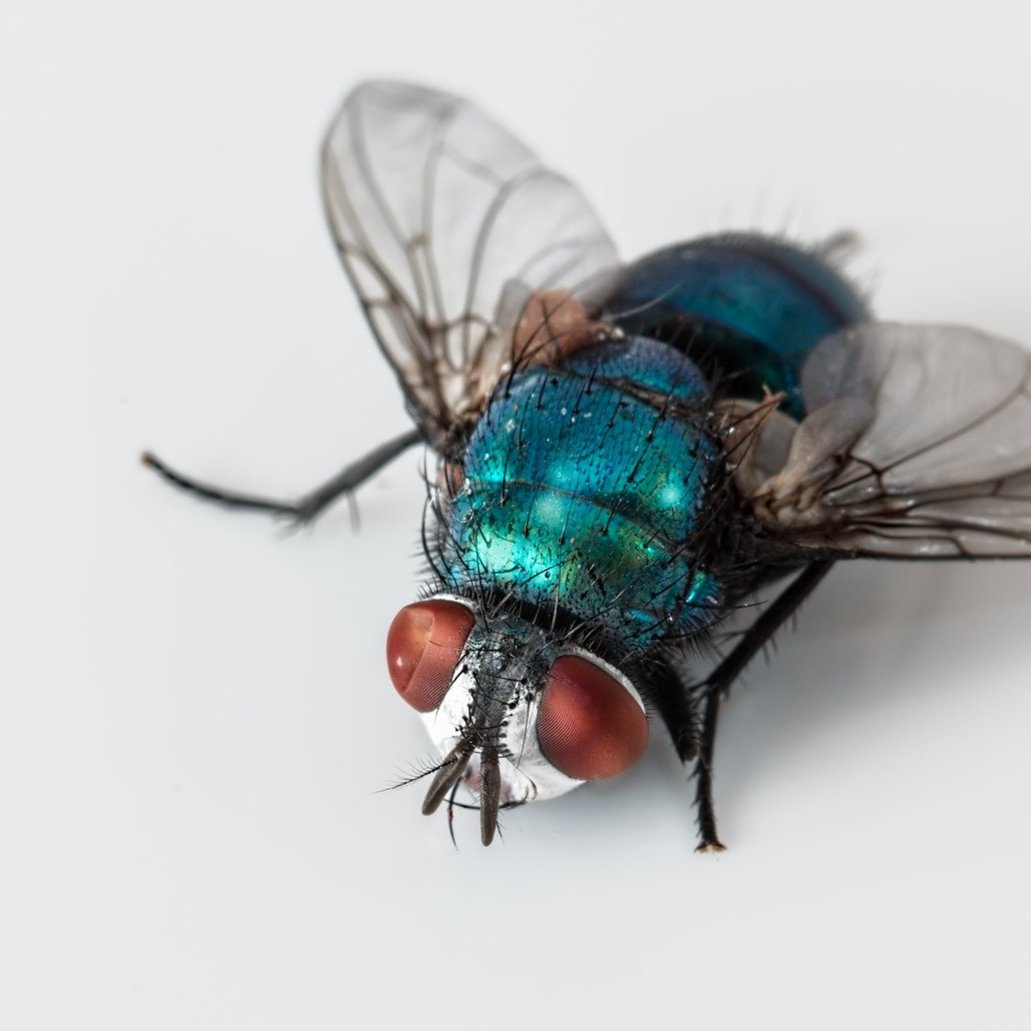
Carrion flies or Blow flies
These are the large bluebottle and smaller greenbottle varieties that like decaying meat, we will see these flying around wheelie bins and bin compounds in the warmer weather. They will also eat animal faeces and can burrow into the flesh of domestic animals on farms. These flies can be easily controlled with fly traps which lure the insects into a chamber from which they cannot escape and eventually drown in the attractant.
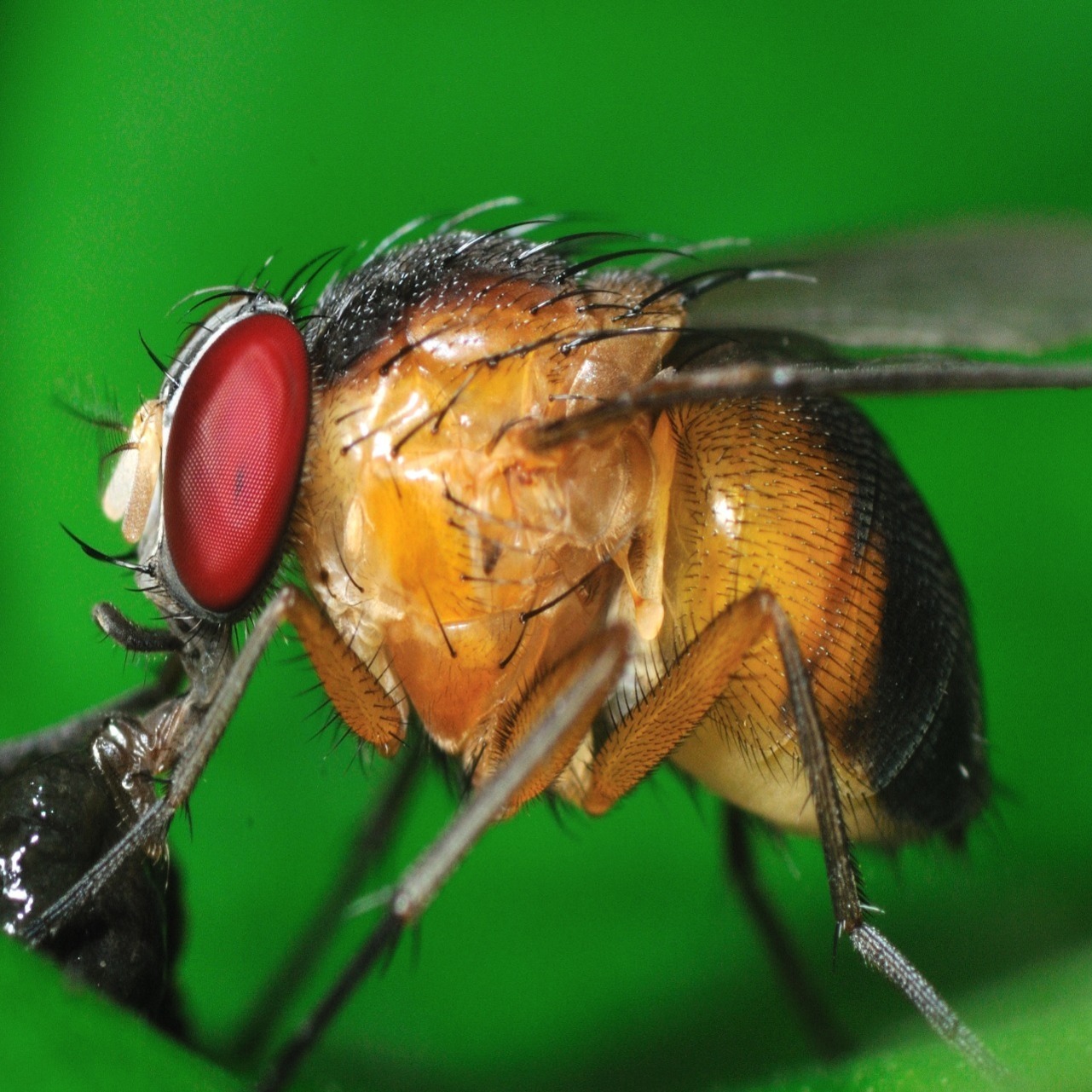
Fruit flies
We will find these hanging around over ripe fruit; as the fruit sugars ferment yeast cells grow which attract the flies, they are particularly attracted to fermenting fruit juices. In hard skinned fruit as they over-ripen they will start to pressurise from the internal changes, spraying out a fine mist of juice into the atmosphere attracting fruit flies.. Fruit flies are also drawn to bananas and they lay their eggs under the skin of fruit, again these flies easily controlled with electric fly killing machines that attract flies onto either an electric grid or a sticky glue board.
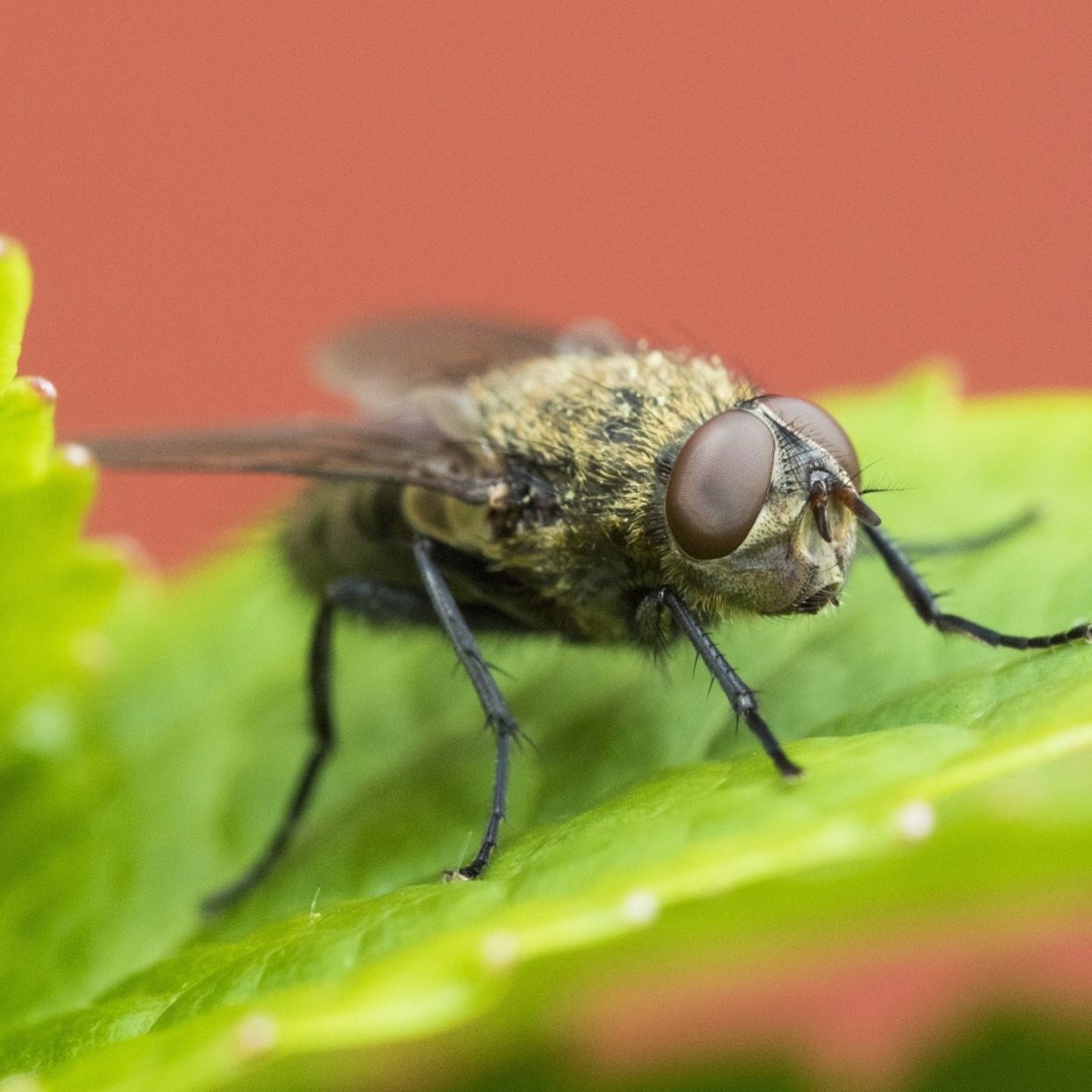
Cluster Flies
These will find their way into lofts and void spaces like casement window frames in the autumn months to overwinter, the best time to treat cluster flies is in the late autumn when they have all settled in, a dark grey fly which feeds on pollen during the summer, these flies are a major pest in rural areas and easily treated with a fogging agent.
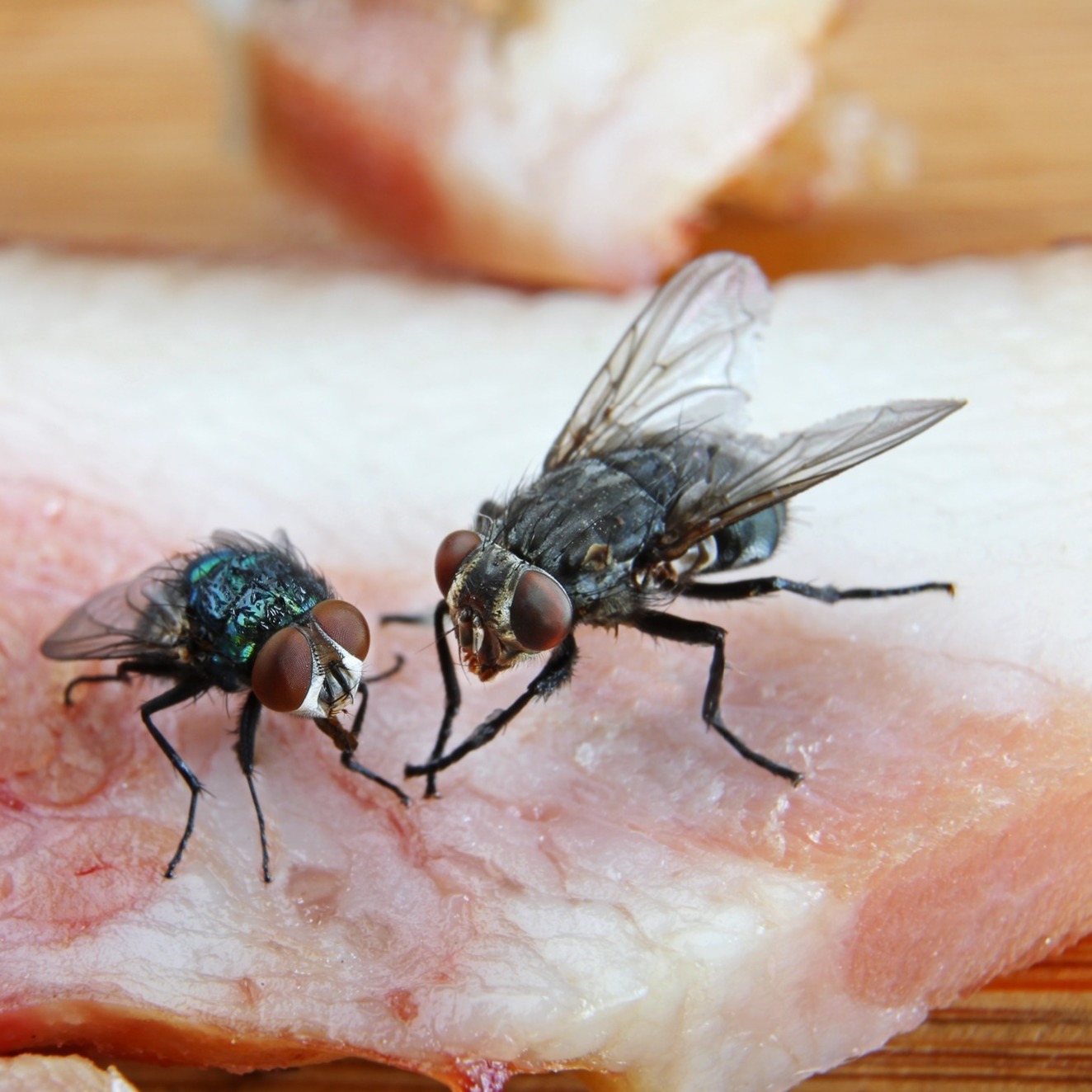
House flies
These are the ones that fly in a square pattern inside rooms; these are actually the female house fly that stakes out a territory waiting for a male to come along. House flies mostly eat decaying matter; meat, vegetable and animal faeces, sometimes they will feed on flower nectar and unlike blowflies, these posses a hook like structure in their mouth so they can eat solid matter.
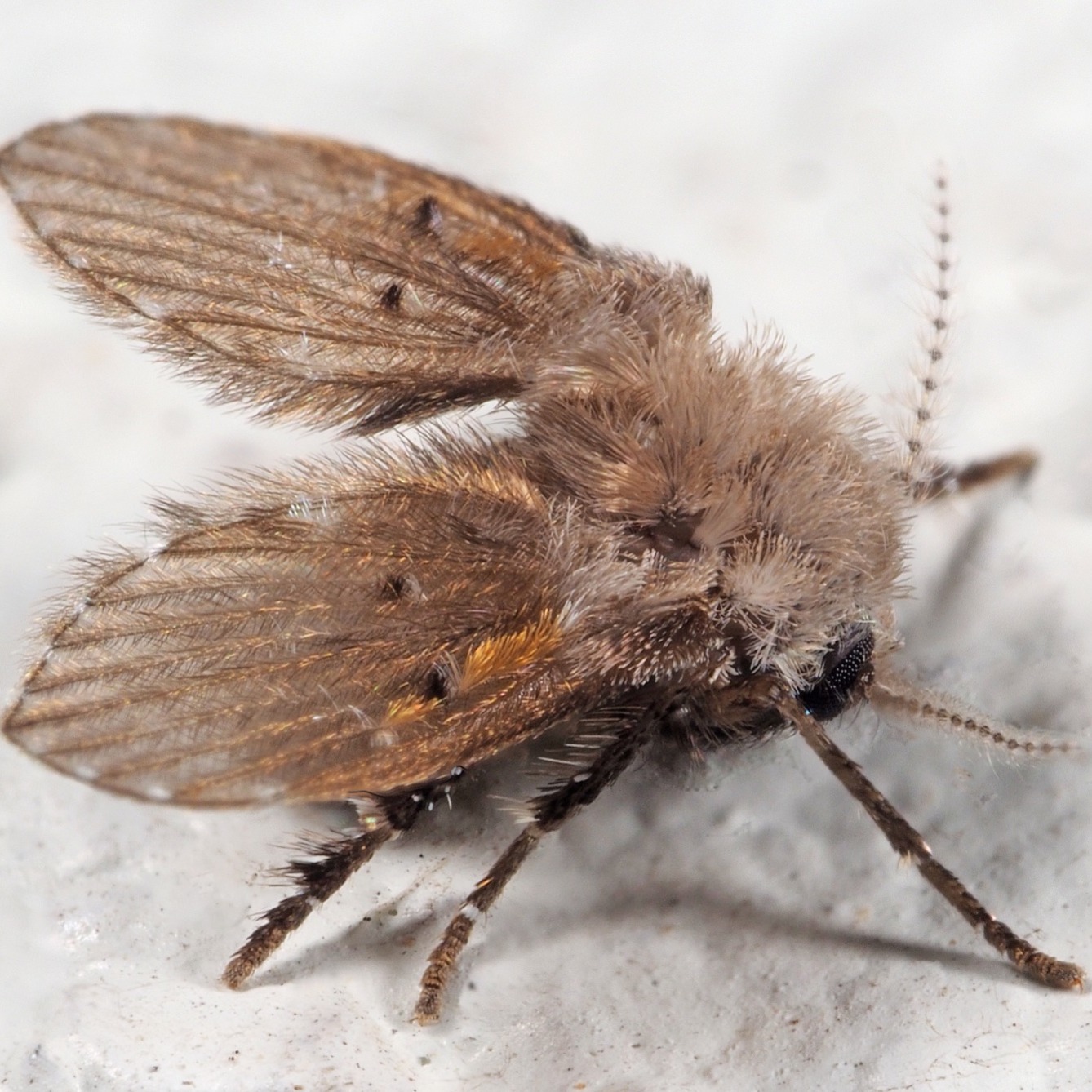
Drain flies
Sometimes called the moth fly due to its shaggy shape, these are a common enough problem in homes and businesses in Reading and Wokingham. Drain flies eat decomposing organic matter and sewage, you will find these flies following a leak from the drains or when the drains have become blocked. These flies feed on semi-solid gelatinous matter and slime that builds up in the neck of the drains; household or commercial drains that have not be cleaned are an ideal breeding ground for drain flies.
Complete fly control throughout Reading and beyond
All Aspects Pest Control Reading provides a free telephone consultation if you think you have a fly infestation and we will advise you on the best course of treatment. We are adept at installing fly screens and fly killer machines and set your business up with a monitoring and control plan to provide you with effective fly management.
We provide detailed reporting systems to include COSHH assessments, monitoring reports, and hygiene, housekeeping and risk assessments. All our technicians are trained and certified to provide the best pest control solution.
Professional fly treatments
We have different methods to achieve control of a fly infestation.
Installation of fly screens
We can measure up and install mesh screens over openings to keep flies out, this is particularly important for commercial food premises where a secure and hygienic workplace is a food safety requirement.
Electric fly killer machines: the ultimate form of fly control
We supply a range of fly killer machines from electric kill grid to glue board types, mains 240V to smaller portable battery-operated machines for domestic use. Electric kill grid machines are an older style which operate by drawing in flying insects and killing them when they make contact with an electric grid, very efficient however fly debris can be ejected off the grid and cover a radius of up to 2 metres. Where space and contamination are an issue within a kitchen, glue board machines can be used however these require regular replacement of the boards to stop dust and airborne contamination from rendering the glue surface useless.
Chemical treatments for fly control
With large quantities of fly species such as cluster flies and drain flies we can use an foggable insecticide that rapidly fills any void, this produces an ultra-fine mist of liquid droplets that give a quick knock down. The liquid particles travel outwards filling the void and where the droplets fall onto surfaces, they have a long-lasting residual capability.
Hanging traps for outdoor fly control
Where some form of exterior control is required; around bin compounds and areas like stables, kennels and catteries we can install and service hanging traps that lure flies inside onto a liquid medium, because the flies can’t escape they drown in the liquid; a cheap effective form of fly control in difficult areas.
Why is it so hard to swat a fly?
We have all done it, rolled up a newspaper to swat a pesky fly and no matter how we do it, we just can’t seem to get anywhere near it. How does a tiny insect with a small brain outwit us so easily?
Its evolution that is on the side of the fly and the speed in which both of our respective brains receive an image, this is called the flicker rate and describes the action of our brains. When we process the information coming in from our eyes, rather than seeing a continuous video of the world, we see individual snapshots which are pieced together to make the moving image.
Our brains have a flicker rate or around 60 images per second, that’s not bad eh? A fly’s brain processes around 250 images a second and that means that the fly is five times faster than us, not so good now?
But that’s not the end of it, to add to our woes there is also something called the flicker fusion rate which details how quickly our brains process those images and when it comes down to man versus fly, we come second once again. Flies can process these images 400 times faster than we can, so reach for the can of fly spray rather than a newspaper, unless you enjoy a challenge.
Frequently asked questions about flies

How do flies taste food?
Flies have taste receptors in their feet, when a fly lands on an object it begins to see if it’s a tasty meal, so anything from dog feaces to a plate of food left uncovered is trodden on as the fly walks back and forth tasting as it goes.

Can flies spread diseases?
Yes, due to their feeding habits flies will walk around on any food source; dead animals, feaces and human food are all dishes that flies like to sample, spreading harmful bacteria and viruses as they travel around.

How do flies eat?
Flies eat by regurgitating its stomach contents onto its next meal, the digestive acids starts to break down this matter assisted by the flea paddling in the mess, slowly turning a solid into a liquid meal which the fly then slurps up




